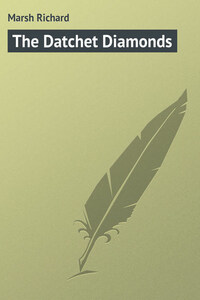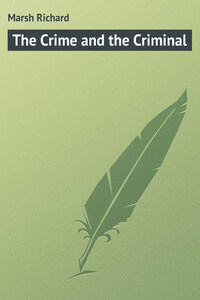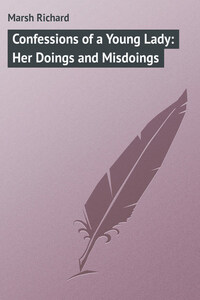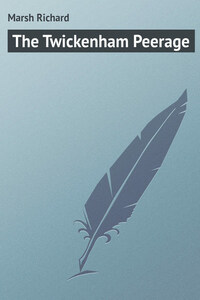CHAPTER I
TWO MEN AND A MAID
The band struck up a waltz. It chanced to be the one which they had last danced together at the Dome. How well he had danced, and how guilty she had felt! Conscious of what almost amounted to a sense of impropriety! Charlie had taken her; it was Charlie who had made her go-but then, in some eyes, Miss Wentworth might not have been regarded as the most unimpeachable of chaperons. That Cyril, for instance, would have had strong opinions of his own upon that point, Miss Strong was well aware.
While Miss Strong listened, thinking of the last time she had heard that waltz, the man with whom she had danced it stood, all at once, in front of her. She had half expected that it would be so-half had feared it. It was not the first time they had encountered each other on the pier; Miss Strong had already begun to more than suspect that the chance of encountering her was the magnet which drew Mr. Lawrence through the turnstiles. She did not wish to meet him; she assured herself that she did not wish to meet him. But, on the other hand, she did not wish to go out of her way so as to seem to run away from him.
The acquaintance had begun on the top of the Devil's Dyke in the middle of a shower of rain. Miss Strong, feeling in want of occupation, and, to speak the truth, a little in the blues, had gone, on an unpromising afternoon in April, on the spur of the moment, and in something like a temper, on a solitary excursion to the Devil's Dyke. On the Downs the wind blew great guns. She could hardly stand against it. Yet it did her good, for it suited her mood. She struggled on over the slopes, past Poynings, when, suddenly-she, in her abstraction, having paid no heed to the weather, and expecting nothing of the kind-it came down a perfect deluge of rain. She had a walking-stick, but neither mackintosh nor umbrella. There seemed every likelihood of her having to return like a drowned rat to Brighton, when, with the appropriateness of a fairy tale, some one came rushing to her with an umbrella in his hand. She could hardly refuse the proffered shelter, and the consequence was that the owner of the umbrella escorted her first to the hotel, then to the station, and afterwards to Brighton. Nor, after such services had been rendered, when they parted at the station did she think it necessary to inform him that, not under any circumstances, was he to notice her again; besides, from what she had seen of him, she rather liked the man. So, when, two days afterwards, he stopped her on the pier to ask if she had suffered any ill-effects from her exposure, it took her some five-and-twenty minutes to explain that she had not. There were other meetings, mostly on the pier; and then, as a climax, that Masonic Ball at the Dome. She danced with him five times! She felt all the time that she ought not; she knew that she would not have done it if Cyril had been there. Miss Wentworth, introduced by Miss Strong, danced with him twice, and when asked by Miss Strong if she thought that she-Miss Strong-ought to have three dances with him Miss Wentworth declared that she did not see why, if she liked, she should not have thirty. So Miss Strong had five-which shows that Miss Wentworth's notions of the duties of a chaperon were vague.
And now the band was striking up that identical waltz; and there was Mr. Lawrence standing in front of the lady with whom he had danced it.
"I believe that that was ours, Miss Strong," he said.
"I think it was."
He was holding her hand in his, and looking at her with something in his eyes which there and then she told herself would never do. They threaded their way through the crowd of people towards the head of the pier, saying little, which was worse than saying much. Although Charlie had been working, Miss Strong wished she had stayed at home with her; it would have been better than this. A sense of pending peril made her positively nervous; she wanted to get away from her companion, and yet for the moment she did not see her way to do it.
Beyond doubt Mr. Lawrence was not a man in whose favour nothing could be said. He was of medium height, had a good figure, and held himself well. He was very fair, with a slight moustache, and a mouth which was firm and resolute. His eyes were blue-a light, bright blue-beautiful eyes they were, but scarcely of the kind which could correctly be described as sympathetic. His complexion was almost like a girl's, it was so pink and white; he seemed the picture of health. His manners were peculiarly gentle. He moved noiselessly, without any appearance of exertion. His voice, though soft, was of so penetrating a quality and so completely under control that, without betraying by any movement of his lips the fact that he was speaking, he could make his faintest whisper audible in a way which was quite uncanny. Whatever his dress might be, on him it always seemed unobtrusive; indeed, the strangest thing about the man was that, while he always seemed to be the most retiring of human beings, in reality he was one of the most difficult to be rid of, as Miss Strong was finding now. More than once, just as she was about to give him his dismissal, he managed to prevent her doing so in a manner which, while she found it impossible to resent it, was not by any means to her taste. Finally, finding it difficult to be rid of him in any other way, and being, for some reason which she would herself have found it difficult to put into words, unusually anxious to be freed from his companionship, she resolved, in desperation, to leave the pier. She acquainted him with her determination to be off, and then, immediately afterwards, not a little to her surprise and a good deal to her disgust, she found herself walking towards the pier-gates with him at her side. Miss Strong's wish had been to part from him there and then; but again he had managed to prevent the actual expression of her wish, and it seemed plain that she was still to be saddled with his society, at any rate, as far as the gates.














